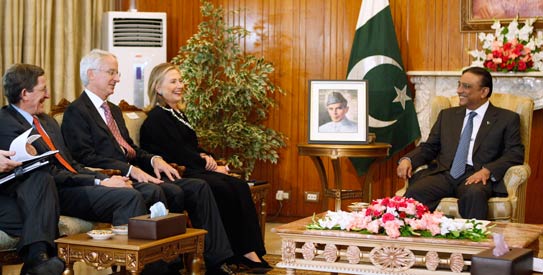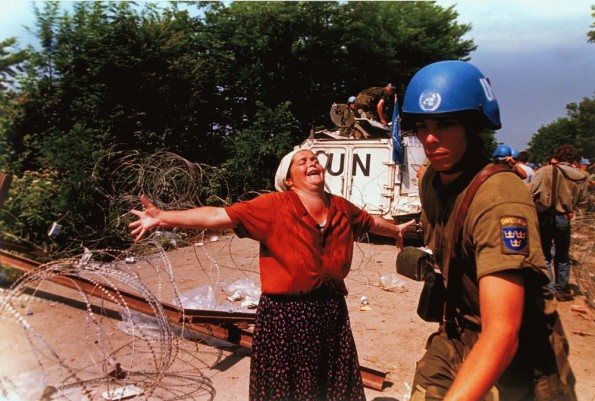In an update to the US-Pakistan border crossing dispute, major news sources are reporting that Pakistan looks set to go ahead with reopening the borders to foreign ground traffic, pending approval by parliament. The routes have been closed since November 2011 “Salala incident,” when 26 Pakistani soldiers died after a firefight with US troops on the Pakistan-Afghanistan border. Under the new agreement, Pakistan will impose substantial fees on NATO container trucks and fuel tankers. Unconfirmed sources have claimed that it may earn as much as $1-million per day from the arrangement. In return, the US is expected to ask Pakistan to take charge of providing security for the convoys.
[captionpix align=”left” theme=”elegant” width=”320″ imgsrc=”http://upload.wikimedia.org/wikipedia/commons/thumb/0/0b/NATO_supply_routes_through_Pakistan.svg/450px-NATO_supply_routes_through_Pakistan.svg.png” captiontext=” Delivery of supplies is done using a combination of air transport and a series of overland supply routes.”]
The routes are set to be reopened after a joint session of both houses of parliament meets on March 19th. The legislators will consider the recommendations made by a select joint parliamentary committee tasked with reviewing the US-Pakistan relationship. Both the government and the military have said they will stand by the parliamentary decision. The army, in particular, is likely to keep a low profile on the issue as it has been criticized recently for its “behind-the-scenes influence” on Pakistani politics.
While the prospect of a new chapter in US-Pakistani relations is encouraging, it remains to be seen how the new terms will actually play out. On one side, the US is trying to extricate itself from Afghanistan, and would welcome the reopening of the borders considering the tenfold higher cost for using the alternate “Northern Distribution Network.” For its part, Pakistan wants to re-engage with the US in order to have a say in the latter’s covert drone program. Drone strikes remain a major source of friction between the two states, with the parliamentary opposition in Pakistan demanding the US put an end to the program completely. But American officials have said they will not consider grounding the aircraft they believe have proven “extremely precise and effective” in targeting militants.
Even though Pakistani officials have promised a “no more blank cheques” policy in future dealings with the US, there are few indications of exactly which concrete steps will be taken. Once the parliamentary review is completed, the head of US military Central Command, James Mattis, is scheduled to visit Pakistan. It will be the first major visit by US officials since the deadly Salala checkpoint incident on November 26, 2011, which closed the ground crossings to NATO convoys. The discussions are set to feature as the first step on the long road towards resolving the NATO pull-out from Afghanistan and determining future US engagement with Pakistan—with the Salala incident featuring as just one of the issues which the two countries will have to reconcile along the way.



